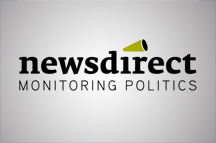 At a press conference in Edinburgh today, Kezia Dugdale set out Labour’s Alternative Programme for Government. It marked an explicit attempt to move the debate on from both leadership woes and the county’s seemingly numerous constitutional crises, neither of which the Labour party has managed to tackle very effectively in recent years.
At a press conference in Edinburgh today, Kezia Dugdale set out Labour’s Alternative Programme for Government. It marked an explicit attempt to move the debate on from both leadership woes and the county’s seemingly numerous constitutional crises, neither of which the Labour party has managed to tackle very effectively in recent years.
After commending Mayor of London, Sadiq Khan, for utilising his first 100 days in office to enact various initiatives on reducing pollution and transforming London’s transport system, Kezia Dugdale accused the SNP of squandering their return to power by allowing the constitutional debate of Scottish independence to dominate discussion.
Set against this backdrop, Kezia Dugdale was keen to use this announcement to re-focus the Government on “reforming and investing in our public services, and getting people back to work”.
As a priority issue, and one in which the SNP has received numerous criticisms over the past month, the Alternative Programme opens with an Education Bill which includes a Fair Start Fund for narrowing the attainment gap, the introduction of a Scottish Graduate Certificate, the abolition of charges for exam appeals and increased investment in after-school sport using proceeds from the sugar tax.
In another nod to what could be deemed as a contentious issue for the SNP, Labour has suggested a bill that bans fracking outright throughout Scotland, arguing that it would have a negative impact on the natural environment and contradict Scottish climate change targets.
 On health and social care, Labour propose the implementation of Unison’s Ethical Care Charter to build a “professionalised industry” with guarantees the living wage and appropriate training, and the party reaffirmed its commitment to a new Transplant Bill. The proposed Anti-Poverty Bill is built on recommendations from the Eisenstadt Report which advocates abolishing the current council tax system and building 60,000 affordable houses amongst various other proposals.
On health and social care, Labour propose the implementation of Unison’s Ethical Care Charter to build a “professionalised industry” with guarantees the living wage and appropriate training, and the party reaffirmed its commitment to a new Transplant Bill. The proposed Anti-Poverty Bill is built on recommendations from the Eisenstadt Report which advocates abolishing the current council tax system and building 60,000 affordable houses amongst various other proposals.
Both the SNP and Labour agree on the need for a Warm Homes Bill to tackle fuel poverty amongst pensioners, and Labour has also called for a Bus Regulation Bill, citing the success of Lothian buses and the need for local communities to have greater influence over transport services.
As has been highly publicised recently, James Kelly is consulting on a Labour Bill to repeal the Offensive Behaviour at Football and Threatening Communications (Scotland) Act 2012, having accused it of being a “bad piece of legislation”. The Programme also calls for a Refugee Integration Bill that cements refugees’ rights with regards to public service access and lays out guidelines to simplify the law’s language and interpretation on this matter.
The Alternative Programme for Government finishes by introducing the Budget Accountability Bill and the Parliamentary Reform Bill. In light of recent questions over the Scottish Parliament’s ability to effectively scrutinise legislation, these proposals provide the mandate for the Scottish Fiscal Commission to audit Scottish Government accounts and ensures additional checks and balances are placed on the Scottish Government’s power, particularly with regards to committees.
Despite Kezia Dugdale’s intentions, questions from the press predominantly focused on her positions on independence, a second EU referendum and Jeremy Corbyn. Whilst she may long for the debate to move away from such issues, the Scottish public (and journalists) are not yet willing to play ball.
It will be interesting to see how the Scottish Government’s Legislative Programme – to be released on Tuesday – compares.












